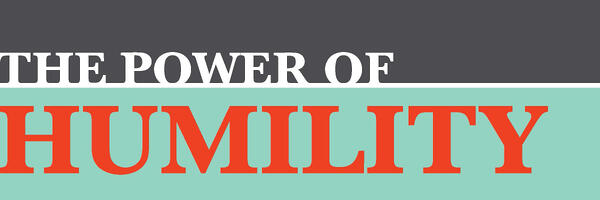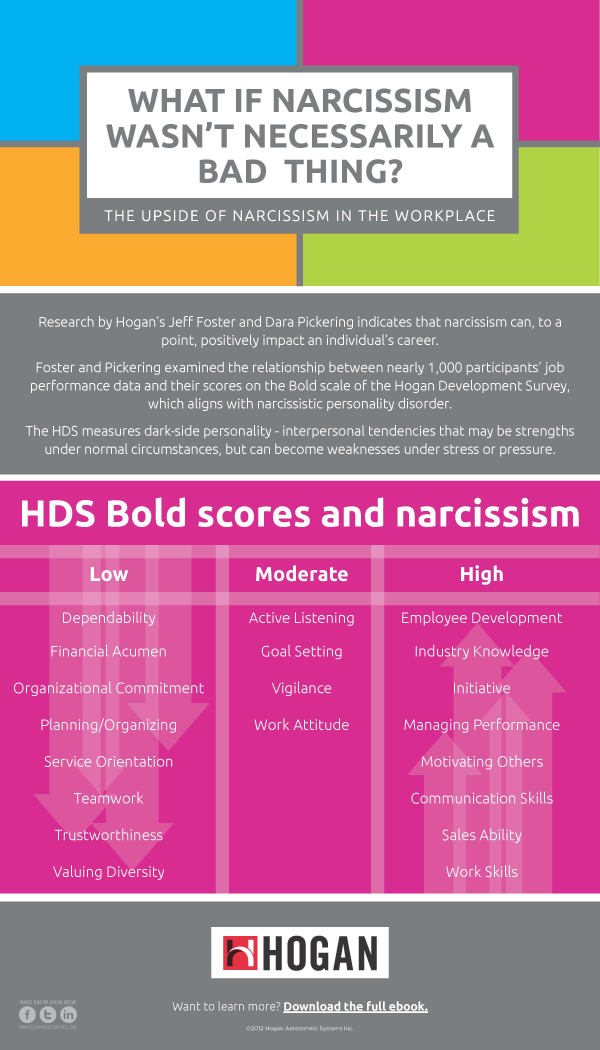 Narcissists don’t just think they are better than everyone else, they actually ARE better – at least when it comes to interviewing. In his recent study, Dr. Peter Harms (a Hogan academic partner) found that narcissistic behaviors such as self-promotion and self-confidence make narcissists more desirable during job interviews. Ultimately, narcissists better communicate why they’re able to do the job.
Narcissists don’t just think they are better than everyone else, they actually ARE better – at least when it comes to interviewing. In his recent study, Dr. Peter Harms (a Hogan academic partner) found that narcissistic behaviors such as self-promotion and self-confidence make narcissists more desirable during job interviews. Ultimately, narcissists better communicate why they’re able to do the job.
As reported by U.S. News, Harms explained, "This is one setting where it's OK to say nice things about yourself and there are no ramifications. In fact, it's expected. Simply put, those who are comfortable doing this tend to do much better than those who aren't."
Although narcissists may ace the interview, their self-promoting ways likely catch up with them sooner or later. Confidence, ambition, and competitiveness taken to the extreme can damage relationships and lead to career derailment, especially for those in leadership roles.
In a recent Hogan survey, 52% of respondents identified arrogance as their bad boss’s worst quality. Arrogant bosses tend to blame their mistakes on others, feel entitled to special treatment, and lack a sense of team loyalty. Thus, the characteristics that seem desirable at first are the same ones that cause leaders to fail.
You don’t have to look far to find examples in the popular media. Take Mad Men’s Don Draper for example. As the narcissistic creative director at a Manhattan advertising firm, Don appears attractive, charming, witty, and confident. However, you soon realize Don is also off-putting, aggressive, and overly demanding of his direct reports. Don’s narcissism causes both the initial attraction and eventual alienation of his employees.
Beyond fictional characters, you can also find examples in the business world. While partnering with a convenience store chain, we found that narcissists within the company were successful in certain leadership roles, but not in others. For lower-level store leaders, narcissism was actually a positive characteristic. Narcissistic individuals came across as decisive, assertive, motivated to get ahead, and more successful overall. Similar to Dr. Harms’s research, these store leaders leveraged their narcissistic tendencies as strengths, leading to enhanced performance.
However, for those in senior leadership roles, the same self-promoting tendencies were detrimental to performance. Instead of appearing decisive and assertive, narcissistic senior leaders came across as aggressive, intimidating, and difficult. As a result, they alienated those around them and their performance suffered.
In summary, strong self-confidence and fearlessness can contribute to one’s success…to a point. Although narcissists may be convincing during an interview – beware. Everyday strengths, such as assertiveness and ambition, can easily turn into derailers.
 Ever heard that phrase “fake it until you make it”? In his latest book, Confidence, Tomas Chamorro-Premuzic advises that “when you are competent, fake modesty. When you are not, fake competence. And if you cannot fake competence, then try to fake confidence.”
Ever heard that phrase “fake it until you make it”? In his latest book, Confidence, Tomas Chamorro-Premuzic advises that “when you are competent, fake modesty. When you are not, fake competence. And if you cannot fake competence, then try to fake confidence.” 

 We’ve talked about the
We’ve talked about the 

 Narcissists don’t just think they are better than everyone else, they actually ARE better – at least when it comes to interviewing. In his
Narcissists don’t just think they are better than everyone else, they actually ARE better – at least when it comes to interviewing. In his 